Yuze Li
Just ClozE! A Fast and Simple Method for Evaluating the Factual Consistency in Abstractive Summarization
Oct 06, 2022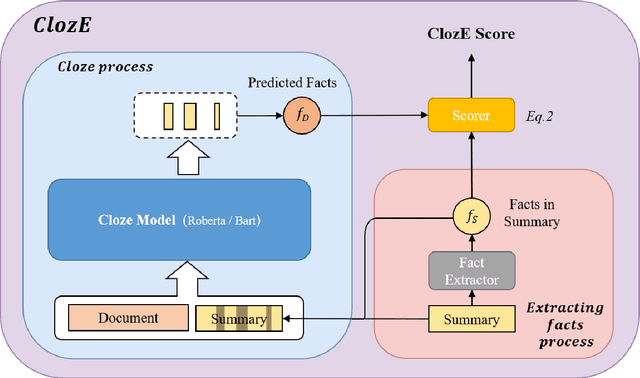
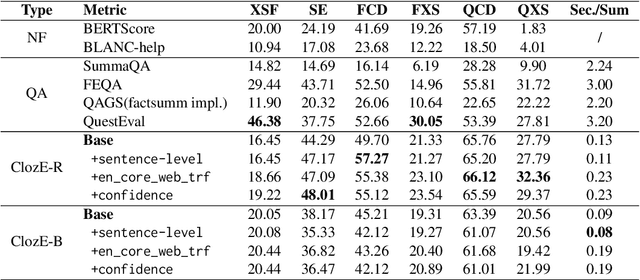


Abstract:The issue of factual consistency in abstractive summarization has attracted much attention in recent years, and the evaluation of factual consistency between summary and document has become an important and urgent task. Most of the current evaluation metrics are adopted from the question answering (QA). However, the application of QA-based metrics is extremely time-consuming in practice, causing the iteration cycle of abstractive summarization research to be severely prolonged. In this paper, we propose a new method called ClozE to evaluate factual consistency by cloze model, instantiated based on masked language model(MLM), with strong interpretability and substantially higher speed. We demonstrate that ClozE can reduce the evaluation time by nearly 96$\%$ relative to QA-based metrics while retaining their interpretability and performance through experiments on six human-annotated datasets and a meta-evaluation benchmark GO FIGURE \citep{gabriel2020go}. We also implement experiments to further demonstrate more characteristics of ClozE in terms of performance and speed. In addition, we conduct an experimental analysis of the limitations of ClozE, which suggests future research directions. The code and models for ClozE will be released upon the paper acceptance.
A Distributed and Elastic Aggregation Service for Scalable Federated Learning Systems
Apr 16, 2022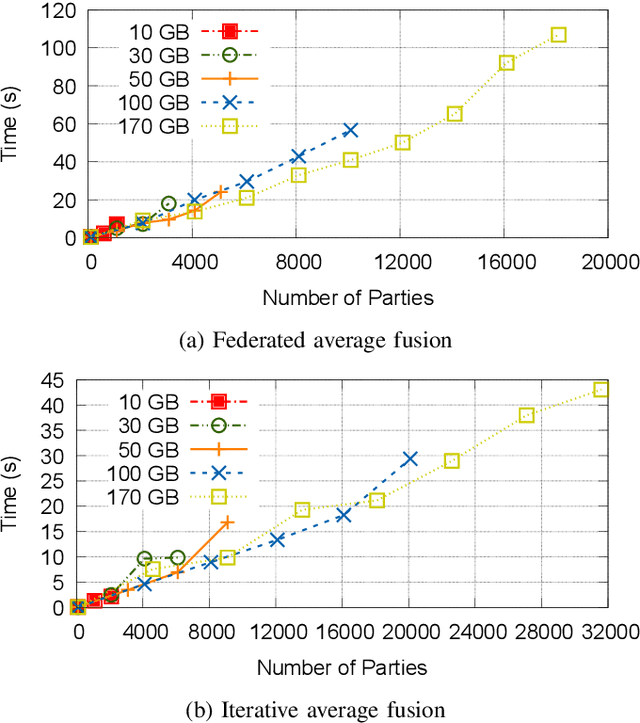
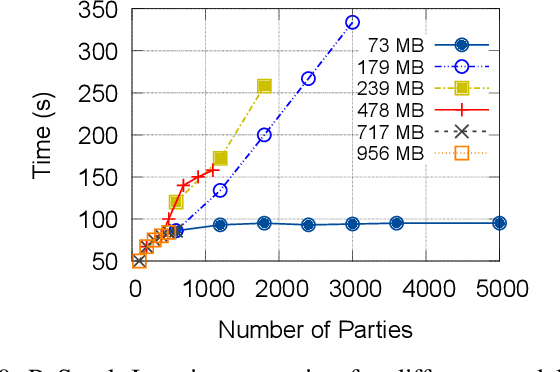

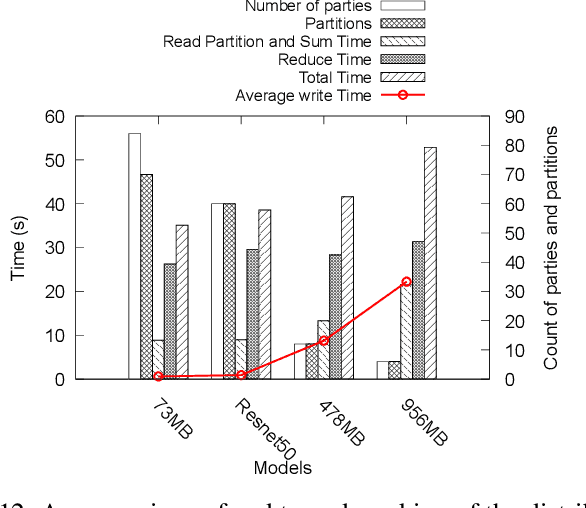
Abstract:Federated Learning has promised a new approach to resolve the challenges in machine learning by bringing computation to the data. The popularity of the approach has led to rapid progress in the algorithmic aspects and the emergence of systems capable of simulating Federated Learning. State of art systems in Federated Learning support a single node aggregator that is insufficient to train a large corpus of devices or train larger-sized models. As the model size or the number of devices increase the single node aggregator incurs memory and computation burden while performing fusion tasks. It also faces communication bottlenecks when a large number of model updates are sent to a single node. We classify the workload for the aggregator into categories and propose a new aggregation service for handling each load. Our aggregation service is based on a holistic approach that chooses the best solution depending on the model update size and the number of clients. Our system provides a fault-tolerant, robust and efficient aggregation solution utilizing existing parallel and distributed frameworks. Through evaluation, we show the shortcomings of the state of art approaches and how a single solution is not suitable for all aggregation requirements. We also provide a comparison of current frameworks with our system through extensive experiments.
 Add to Chrome
Add to Chrome Add to Firefox
Add to Firefox Add to Edge
Add to Edge